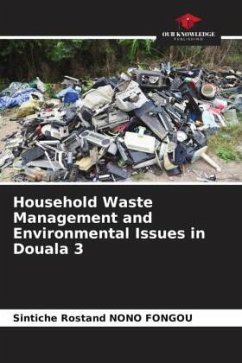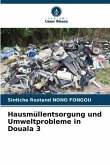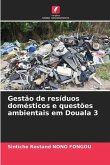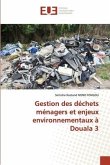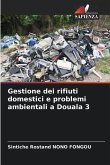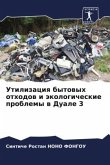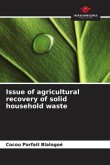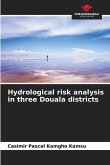The Douala 3 district today covers 16,814 hectares and is home to a population of around 1,936,994 (BUCREP, 2005). It is experiencing unprecedented urban sprawl. At the same time, population growth is contributing to an increase in the production of household waste, the approximate management of which is having repercussions on the population via the environment. These populations dump waste in waterways, on public roads, and create piles of rubbish in neighborhoods, which is at the origin of various risks. The aim of this study is to assess the environmental stakes of the household waste management system in the Douala 3 district, using a holistic-systemic approach based on documentary research, surveys, interviews and field observations. The aim of this research was to reduce the social and environmental impact of poor household waste management in Douala 3.
Bitte wählen Sie Ihr Anliegen aus.
Rechnungen
Retourenschein anfordern
Bestellstatus
Storno

